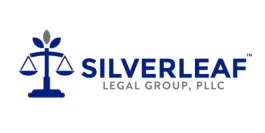A
- Administrator – A person appointed by the court to handle an estate when there is no will.
- Assets – Everything you own, including money, property, investments, and personal belongings.
- Attorney-in-Fact – A person you choose to make legal or financial decisions on your behalf through a power of attorney.
B
- Beneficiary – A person or entity who will receive assets from a will, trust, or life insurance policy.
- Bequest – A gift of money or property left to someone in a will.
- Bypass Trust – A type of trust used to reduce estate taxes when passing assets to heirs.
C
- Codicil – A legal amendment to an existing will.
- Conservatorship – A court process where someone is appointed to manage another person’s affairs due to incapacity.
D
- Decedent – A person who has passed away.
- Deed – A legal document proving ownership of real estate.
- Durable Power of Attorney – A document allowing someone to make financial or legal decisions for you if you become unable to do so.
Dependent Administration – a type of probate process where the estate is administered under the supervision of the court, requiring court approval for many actions
E
- Estate – Everything a person owns at the time of their death.
- Estate Tax – A tax imposed on the total value of a person’s estate before distribution to beneficiaries.
- Executor – The person named in a will to manage the estate and carry out final wishes.
F
- Fiduciary – Someone legally required to act in another person’s best interest, such as an executor or trustee.
- Funding a Trust – Transferring assets into a trust so they are managed according to its terms.
G
- Gift Tax – A tax on large financial gifts given during a person’s lifetime.
- Grantor – The person who creates a trust.
- Guardianship – A legal relationship where someone is appointed to care for a minor or incapacitated adult.
H
- Heir – A person legally entitled to inherit assets when someone dies without a will.
- Holographic Will – A handwritten and signed will that may be recognized as legal in some states.
I
- Incapacity – When a person is no longer able to manage their affairs due to illness or disability.
- Inheritance – Money, property, or other assets passed to someone after a person’s death.
- Irrevocable Trust – A type of trust that cannot be changed or canceled after it is created.
Independent Administration – the executor or administrator manages the estate’s affairs without ongoing court supervision
J
- Joint Tenancy – A type of property ownership where two or more people own a property together, and when one owner dies, the surviving owner(s) automatically inherit the deceased’s share.
L
- Last Will and Testament – A legal document outlining how a person’s assets should be distributed after death.
- Living Trust – A trust created during a person’s lifetime to manage assets and avoid probate.
- Living Will – A document that states a person’s wishes for medical care if they become unable to communicate.
M
- Medicaid Planning – Legal strategies to protect assets while qualifying for long-term care benefits.
- Minor – A person under the legal age of adulthood, typically under 18.
N
- Notary Public – An official who verifies signatures on legal documents.
- Next of Kin – A person’s closest living relative(s) who may inherit assets if there is no will.
P
- Per Stirpes – A method of distributing assets where a deceased person’s share passes to their descendants.
- Personal Representative – Another term for an executor or administrator of an estate.
- Power of Attorney (POA) – A legal document allowing someone to act on your behalf for financial or medical decisions.
- Probate – The court process of validating a will and distributing an estate.
- Probate Court – The legal system that oversees the handling of wills, estates, and guardianships.
R
- Revocable Trust – A trust that can be changed or canceled by the person who created it.
- Residue of Estate – The remaining assets in an estate after debts and specific gifts have been distributed.
S
- Special Needs Trust – A trust designed to provide financial support for a person with disabilities without affecting their government benefits.
- Spendthrift Trust – A trust that limits how a beneficiary can use the assets, protecting them from misuse or creditors.
- Successor Trustee – The person who takes over managing a trust after the original trustee can no longer do so.
T
- Testamentary Trust – A trust that is created through a person’s will and goes into effect after their death.
- Trust – A legal arrangement where a trustee manages assets for the benefit of others.
- Trustee – The person responsible for managing a trust according to its terms.
U
- Uniform Probate Code (UPC) – A set of laws designed to simplify estate planning and probate across different states.
W
- Will – A legal document that directs how a person’s assets should be distributed after death.
- Will Contest – A legal challenge to the validity of a will.
- Witness – Someone who signs a will to confirm that the person creating it did so voluntarily and with a sound mind.
